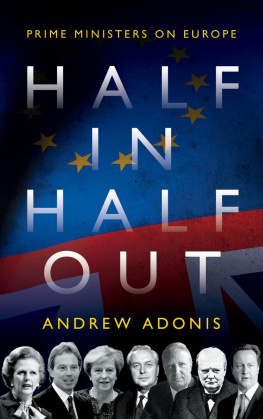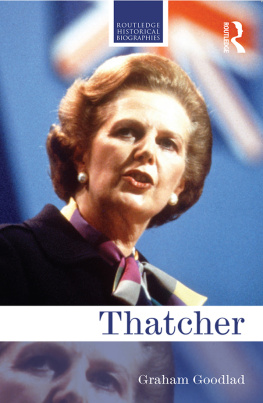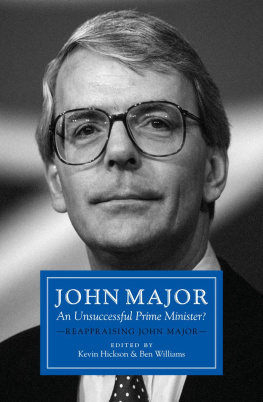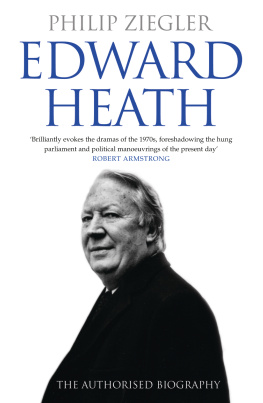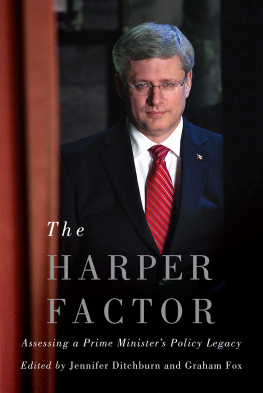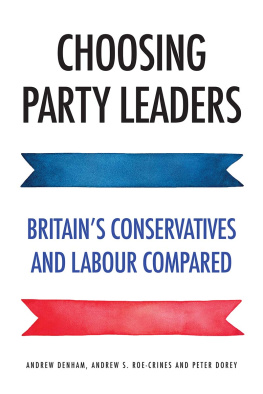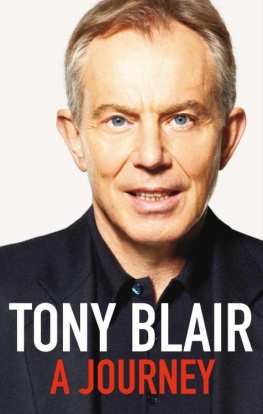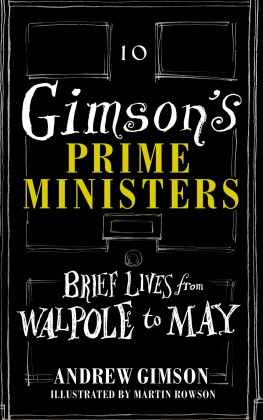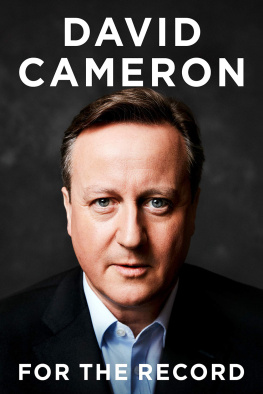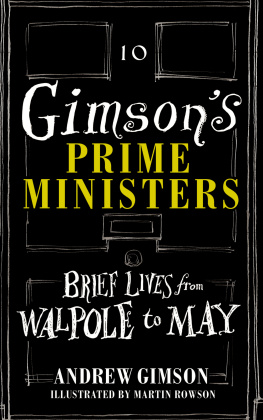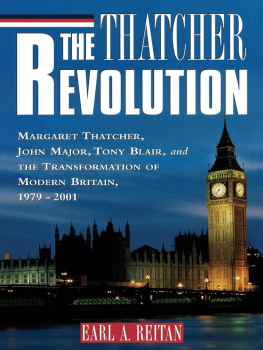ANDREW ADONIS is author of Saving Britain: How We Must Change to Prosper in Europe (with Will Hutton) and a former minister under Tony Blair and Gordon Brown.
DAVID DUTTON is author of Anthony Eden: A Life and Reputation and Professor of Political History at Liverpool University.
DAVID FABER is headmaster of Summer Fields School, Oxford, a former Conservative MP and author of Munich: The 1938 Appeasement Crisis.
ANDREW HOLT is a historian of twentieth-century foreign policy and author of The Foreign Policy of the Douglas-Home Government: Britain, the United States and the End of Empire.
MICHAEL McMANUS is author of Edward Heath: A Singular Life and of An Honourable Man, a play asking the question What if the bitter wounds caused by Brexit do not heal?
DAVID OWEN was Foreign Secretary under James Callaghan, 197779, Labour/SDP MP for Plymouth, 196692, and Leader of the SDP, 198387.
CHRIS PATTEN was a Cabinet minister under Margaret Thatcher, Conservative Party chairman and Governor of Hong Kong under John Major and Tony Blair, and is Chancellor of Oxford University.
CHARLES POWELL , Lord Powell of Bayswater, was foreign affairs private secretary to Margaret Thatcher and John Major, 198391.
RACHEL REEVES is MP for Leeds West and a former economist at the Bank of England and the British embassy in Washington.
STEVE RICHARDS presents Radio 4s Week in Westminster and is author of Reflections on Leadership: Modern Prime Ministers from Heath to May.
SIR IVAN ROGERS was Britains Permanent Representative to the European Union, 201317, and principal private secretary to Tony Blair.
SIR NICHOLAS SOAMES is Conservative MP for Mid Sussex and was Minister for the Armed Forces under John Major.
STEWART WOOD , Lord Wood of Anfield, was adviser on Europe to Gordon Brown and fellow of Magdalen College, Oxford.
ANDREW ADONIS
T he title Half In, Half Out aptly sums up the European policy of the British state since Victory in Europe on 8 May 1945.
I thought, on an initial mental overview, that it also summed up the European policy of each of the fourteen Prime Ministers since 1945. Some were marginally more pro- or anti-European than others but the degrees of difference were fairly small in terms of actual policy, which followed the broad centre-ground consensus at each stage.
All fourteen Prime Ministers sought, I thought, to reconcile raison dtat with vox populi, and the result was realpolitik.
Having engaged closely with each of the fourteen holders of the supreme office since 1945, in and through these essays, I have reached a radically different conclusion. I now suggest that they represent a wide spectrum of views on Europe within the British political class. At each stage, there was no consensus on future policy, except to the extent that the Prime Minister of the day was able to forge one. Far from being preordained, policy was highly contingent on each of their prejudices and preferences.
Only by according fundamental importance to the European policy of each individual Prime Minister since 1945, and grasping the differences between them, can one explain why we didnt go into Europe in the 1940s and 1950s (the intense Euroscepticism of Attlee and Eden, opposed by Churchill in opposition but not in office); why we tried to do so in the 1960s (Macmillan and Wilson led strongly in favour); why we succeeded in doing so in the 1970s (Heath led where Macmillan and Wilson had left off and Wilson, confronting a hostile party in office for a second time, manoeuvred successfully to keep Britain in); and then why we refused to integrate further in the decades after the 1990s, as Thatcher launched modern Euroscepticism and her successors Major, Blair, Brown and Cameron, sharing or fearing it to varying extents, sought largely to maintain the status quo except on the Social Chapter and enlargement of the EU to central and Eastern Europe. It also explains why David Cameron held an in/out referendum in 2016 (a leadership gamble that went catastrophically wrong), and why Theresa May is attempting hard Brexit in 2018 (because she is intent on it, although she is not clear in her own mind or public statements quite what it is).
At every point since 1945, European policy could have been different under different leadership. So today, and so in future.
Leadership matters. Ideas matter. They both matter fundamentally. Jonathan Freedlands profound insight into political behaviour people dont believe in ideas, they believe in people who believe in ideas shines through this book leader by leader.
A second conclusion emanates. Until the 2016 referendum, not one of the fourteen Prime Ministers sought in office to disengage from Europe to any marked degree, whatever the state of European relations they inherited. Nor did they seriously wish to do so. In this respect, there was indeed a consensus based on a practical assessment of the realm of the possible, whether desirable or not; and this consensus held until the referendum on 23 June 2016.
Margaret Thatcher, the most dominant Prime Minister after Churchill in wartime, is highly ambiguous. Her European policy shifted dramatically at different stages of her premiership, as did Churchills before and after taking office in 1951. In her first years, she was a tough, unsentimental negotiator within the EU, but not sceptical so far as membership itself was concerned. Mid-term she became a remarkable force for Euro integration in the creation of the single market. Then, in 1988, came her showdown on social Europe with the socialist President of the Commission, Jacques Delors. This gave rise to her Bruges speech of 20 September 1988, perhaps the single most influential prime ministerial statement on Europe in the seventy-three years under review, akin to Churchills Zurich speech of 1946, made when he was Leader of the Opposition. But even after 1988 indeed within the Bruges speech itself there was uncertainty and outright contradictions, reflecting Thatchers characteristic ambiguity when departing from establishment views and veering sharply right.
It is time for bold, credible leadership on Europe. Where there is no vision the people perish. As a strong pro-European, I see putting bold leadership back into the EU as imperative, and I draw inspiration from the two remarkable essays here by grandsons on their grandfathers Sir Nicholas Soames on Churchill and David Faber on Macmillan. But if we are to leave, we need to leave with a plan that works, and there is none at present.
Some of these essays began as the Hertford Lectures, which were generously hosted by Will Hutton, the principal of Hertford College, Oxford, and supported by Sir Clive Cowdery and Prospect magazine. Iain Dale, with his brilliant political and publishing insight, immediately said that the story had to go back to Churchill to make sense, and encouraged me to publish on the second anniversary of the 2016 referendum. I am hugely grateful to Charlie Atkins, Olivia Beattie, Max Wind-Cowie, Roger Liddle and Bernadette Marron for comments and assistance on the way to publication.
Not all those who led decisively for and against British engagement in the European Union were Prime Ministers. Nigel Farage shares responsibility for Brexit with Margaret Thatcher, David Cameron and Theresa May, while Roy Jenkins stands alongside Churchill, Macmillan, Heath and Wilson for taking us in.
Farage, who never held a responsible post of national leadership, is tellingly the only leader to break from the consensus on staying in once in. All the others share the credit for keeping the show on the road, without crisis leading either to war or economic collapse. In the long view of history, maybe thats as good as it gets.

